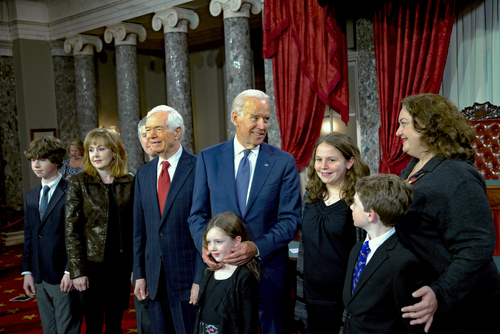
In a recent turn of events that has captured the nation's attention, the Department of Justice (DOJ) is seeking prison time for Aimee Harris, the woman who discovered and subsequently sold Ashley Biden's diary. This diary, left under a mattress at a Palm Beach rehab home by Joe Biden’s youngest daughter, contains personal reflections that have sparked widespread controversy and debate.
Ashley Biden's diary, found after her stay at a treatment facility, includes entries that suggest questionable conduct between her and her father, Joe Biden. One particular entry from January 2019 recalls how she used to shower with her father at an age she now considers inappropriate, associating these experiences with her struggles with sex addiction. These revelations have not only ignited discussions on privacy and ethics but also raised questions about the media's role in handling such sensitive materials.
This is Aimee Harris. She found Ashley Biden’s diary in a Florida beach home and felt morally obligated to make it public. NOW BIDEN’S DOJ IS SEEKING PRISON TIME AS PUNISHMENT AND PRETENDING SHE “STOLE” IT!
In the diary, Ashley details how her father Joe Biden forced her to take… pic.twitter.com/LxUB61CsJF
— Matt Wallace (@MattWallace888) April 4, 2024
The legal proceedings against Harris and her accomplice, who pleaded guilty to conspiracy to commit interstate transportation of stolen property, have further complicated the narrative. Their plea has enabled the DOJ to press charges against James O'Keefe, the founder of Project Veritas, a controversial media outlet known for its undercover operations. Despite acquiring the diary, Project Veritas chose not to publish its contents due to inability to verify its authenticity. However, the diary was eventually leaked online by another website, leading to FBI raids on premises linked to Project Veritas and O'Keefe].
This case raises significant concerns regarding the legality of obtaining and disseminating sensitive personal materials. While the First Amendment protects freedom of the press, it also necessitates responsible journalism and respect for individuals' privacy. The actions taken by those involved in the sale and distribution of Ashley Biden's diary have sparked a debate on where the line should be drawn between public interest and personal privacy.
FLASHBACK: In this recording Ashley admits that the diary is hers: “I’m Ashley Biden, it is my stuff.”
Alleged, screenshot of her diary read that she took “inappropriate showers” with her father, was “molested” and “sèxualized” in a very young aged.
Furthermore, there are… pic.twitter.com/vsJpjmELr2
— I Meme Therefore I Am 🇺🇸 (@ImMeme0) April 4, 2024
Moreover, the involvement of the DOJ and the subsequent legal actions against Harris and O'Keefe have introduced political dimensions to the discourse. Critics argue that the aggressive pursuit of legal penalties in this case may reflect broader issues of political bias and the use of federal power to silence dissenting voices.
The ethical considerations surrounding the publication of private materials without consent are complex. In the digital age, where information can be rapidly disseminated worldwide, the implications of leaking personal documents are profound. This incident underscores the need for a balanced approach that respects both the public's right to know and individuals' rights to privacy.
As the legal battle unfolds, it serves as a reminder of the delicate balance between transparency and privacy in our society. The outcome of this case could set precedents for how similar situations are handled in the future, influencing both legal standards and journalistic practices.
In conclusion, the saga of Ashley Biden's diary is more than just a legal dispute; it is a reflection of the ongoing tensions between privacy, ethics, and politics in the modern world. As society grapples with these issues, the importance of maintaining a fair and just approach to sensitive matters has never been more apparent.












